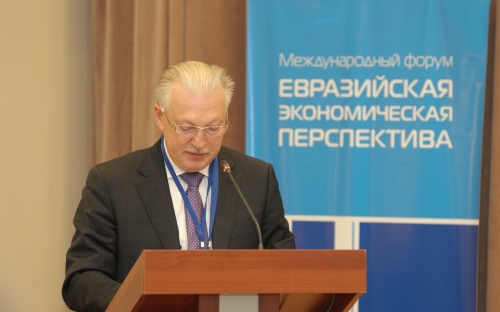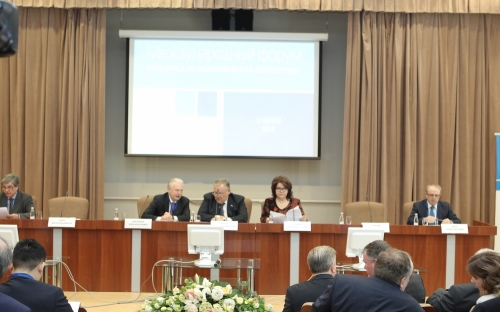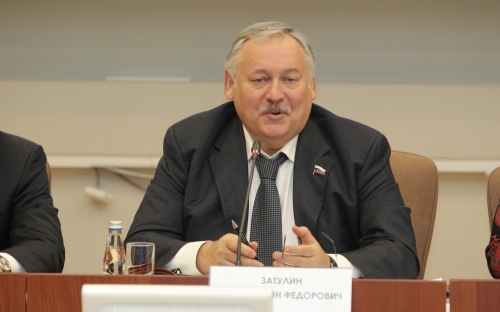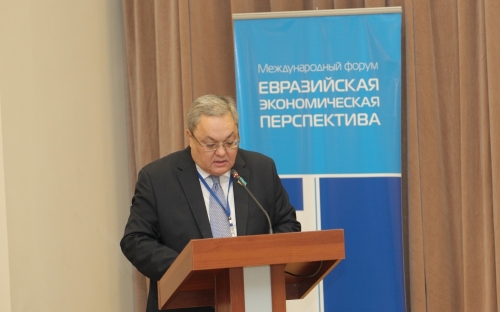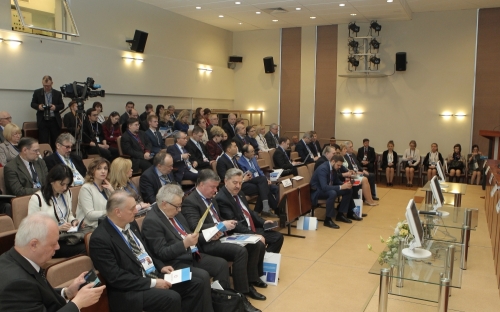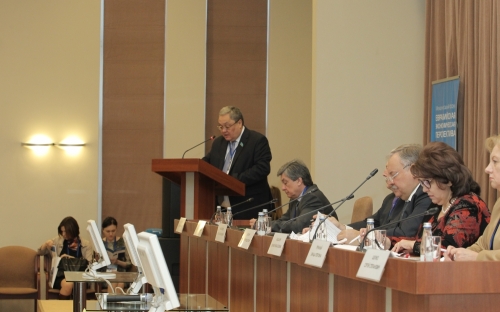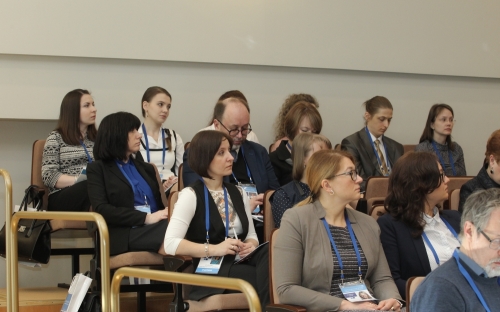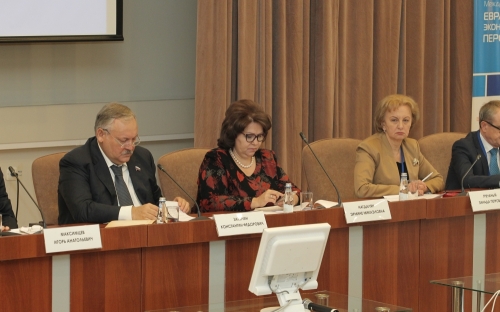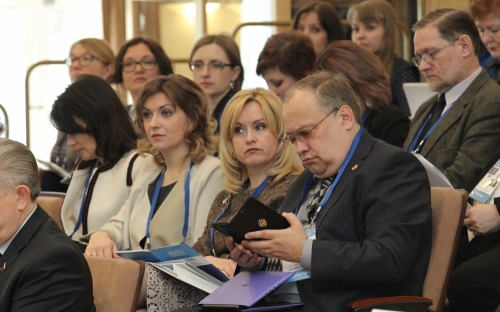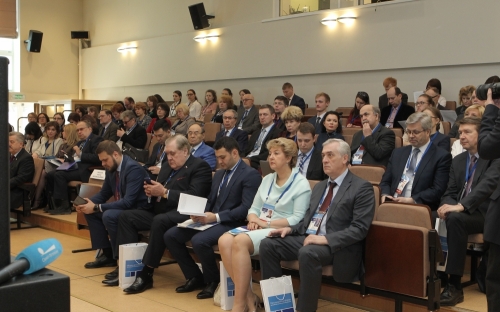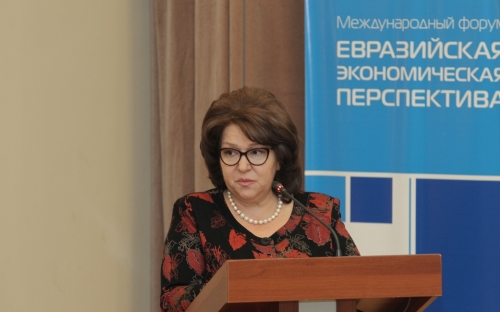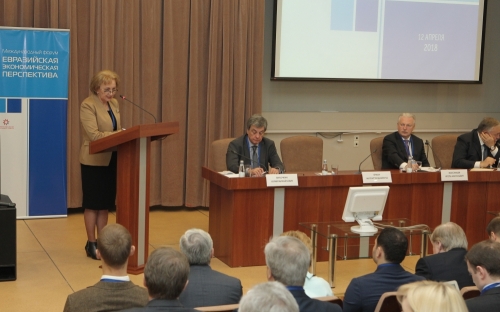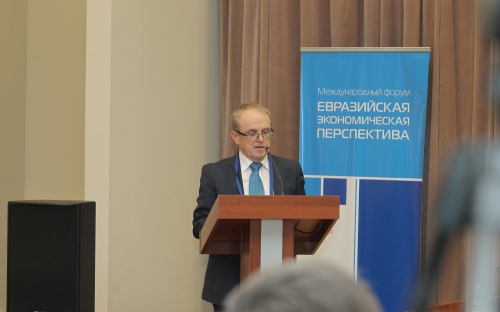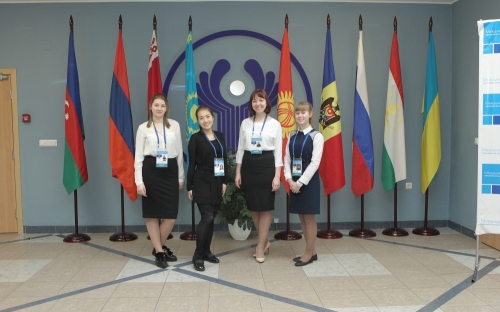The spring session of the International Forum "Eurasian Economic Perspective", dedicated to the integration of the Eurasian space, was held on April 12, 2018 at the Parliamentary Center in St. Petersburg. On the single platform representatives of the expert and academic communities, parliamentarians of member countries and observers of the Eurasian economic Union, business leaders were united in a productive dialogue about the multiplicity of the processes of the Eurasian Association.
The significance of the event is reflected in the composition of the participants, organizers, speakers and the content of their reports. The moderators of the plenary session, represented by the first Deputy Chairman of the state Duma Committee on CIS Affairs Zatulin Konstantin Fedorovich and the rector of Saint Petersburg State Economic University Maksimtsev Igor Anatolyevich, presented the greeting speech to the vector of the meeting on a productive note: "Let's finish this day not when we get tired of talking, but when we agree." The purpose of the spring session is to develop specific proposals which remove the barriers to the economic development of the Eurasian Union and the "Greater Eurasia".
The first report on the session by the Chairman of the Committee on foreign Affairs, defence and security of the Republic of Kazakhstan Mukhtar Yerman of Tillabery. In his speech, he touched on the development of prospects for cooperation with Vietnam, India, China and other partner countries, as well as current trends in the work of the Union, which strive for the idea of four freedoms: goods and services, capital, transportation and labor (for example, in 2017, the Union's mutual trade turnover amounted to $54.2 billion).
The optimism shared by the Republic of Armenia, which was represented at the meeting, Mrs. E.M. Naghdalyan, the Deputy speaker of the National Assembly. She stressed that over the past year, exports with the EAEU countries increased by 26% due to consolidation of efforts, increase in the sales market and, as a result, the benefits of economies of scale. To continue the internal development of the Union, three pillars were proposed: modernization, harmonization and unification. The speaker, like many participants, expressed gratitude to Saint-Petersburg State Economic University for the organization of the Eurasian forum, which provides an opportunity to meet with the authorities, business and scientists.
According to Mr. Zatulin, unification of the regulatory system will allow to start the process of activation of the single markets and contribute to the Directive of import substitution. An illustration of the complexity of realization of this problem is the ratification of the provisions of the General customs code of the EAEU in January 2018, which implies a change in 50 the Federal laws of the Russian Federation. Benefits from the introduction of such measures demonstrates a clear case: in the framework of the agenda of the program of digitalization until 2025 introduced a common marking of fur goods, which increased the wholesale trade at 13% and retail 7%. The experience of the Union is of interest to the UN regional offices, OSCE and many others.
The EEU may be replenished with a new observer in its ranks in the person of the Republic of Moldova. Unfortunately, according to the Chairman of the party of socialists, the leader of The socialist party faction in the Parliament of Moldova Mrs. Zinaida Grechanoy, the reorientation of this country to the European Union had a negative impact on the economic growth of the state. A return to the former friendly relations with the CIS, Russia and the EAEU is considered as a tool for overcoming the crisis in the current situation.
The topic of digitalization was emphasized in his report by Shukhno Sergey Stepanovich, Director of the Department of Integration Development of the Eurasian Economic Commission. The implementation of the digital agenda of the Union should lead to a single digital market. The unified digital office of the EAEU was put into operation. "Eurasian digital platforms" competition allows to involve active companies from different countries in the implementation of the goals. The customs code is included in the list of the main documents of the Organization, and the customs complex is a wide area for the introduction of digital tools and increasing the transparency of processes.
According to most members of the Presidium of the session, digitalization, modernization, unification and consolidation are the key moments of the present and future Eurasian prospects. At the moment, 148 obstacles have been identified in the direction of their implementation, the possibilities of overcoming which were devoted to the speech of the doctor of Economics, Professor of Moscow state University, Chairman of the Eurasian Association of universities Sidorovich Alexander Vladimirovich. Professor Sidorovich drew attention to the importance of forming the views of the young generation, their perception of the Eurasian idea, and therefore proposed to increase the role of Spbgeu as the flagship of the scientific development of the economy of Eurasianism.
On the challenges facing education in the development of the idea of "greater Eurasia", was the rector of St. Petersburg State Economic University I. A. Maksimtsev Igor Anatolyevich noted the serious historical Foundation underlying the Eurasian integration. Even more impetus for its development is given by the project of pairing the EAEU and the PRC's initiative "one belt and one road", opening the possibility of creating a mega-region "Greater Eurasia". St. Petersburg State Economic University is actively working to create a scientific and expert platform in St. Petersburg on Eurasian integration and cooperation with European and Asian partners.
The participants continued to discuss the problems voiced at the plenary session at the round tables "Eurasian economic integration: implementation of development priorities in the context of global changes" and "Eurasian humanitarian cooperation: current state and new directions".
